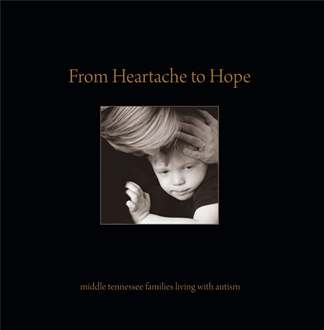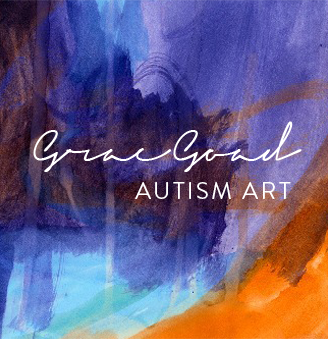Despite my self-pledge to post less and keep it lighter this holiday, today's post today is published in honor of the thousands of Tennesseans living with disAbilities who receive minimal but important funds from The Family Support Program, which is currently on the chopping block with Gov. Bill Haslam and the legislature raising the ax over the alter of some of our state's most disenfranchised citizens. SHAME! We are raising our voices. We are writing letters. I have volunteered to speak and meet. Join us and believe that we will be heard….
Let's talk money. Let's talk green….
When I tell our story–our meaning both the personal and the autism community–sometimes I insert the financial hardship that this pervasive and enigmatic disAbility poses. It's time to expound on that. Right now. Right here….
If you are living outside of our community, from the outside looking in: Did you know that it's very common for a family of a child with autism to mortgage their home one, two, even three or more times just to pay for things like, oh, say…helping your child learn to talk? That is why when I sold my house, then, still co-owned with Grace's father, a year-and-a-half ago, there was virtually zero equity to pull out and invest forward. Virtually pennies.
Yet, I have also often stressed it is a privilege to go onto debt. Huh? Yeah, we were able to refinance our home. We were able to borrow. We found ways to fork over $20K to pay for speech therapies when insurance denied us our state rights and shut the funding flow. Privileged because having worked one year (1999-2000,) as an Autism Society of Middle Tennessee parent representative, I saw the spectrum of parental finances. Like the single mother who works the night shift at the local convenience store. The parent who lives in a trailer.
My behavior therapist friend serves rural clients who are indigent or nearly and receive state funded health insurance from TennCare. Ironically–but not begrudgingly–so many of the rest of us go broke and can't afford that quality of care. I have friends who make decent salaries who have done less well than my family in securing out-of-pocket services. Our children's futures and our own are at risk as a consequence. We all bear scars from the battleground of profit-mongering insurance companies. Companies such as Blue Cross Blue Skrew and others live on to slay more poor schmucks and build new multi-million corporate headquarters and fatten the wallets of share holders!
We families with children who have autism are upper middle class. We are middle class. We are lower class. Financially, we are rich, poor and the levels in between. Financially, like our children, we are packed in all along the spectrum.
And then there's the upper class. I have friends in those greener pastures, too. Early on, by observation, I figured that a family had to earn about $500,000 annually to be able to live as they would normally–affording the vacations and other luxuries they would still enjoy if they did not have autism inhabiting their lives. That said, I've watched these same families lay out inordinate expenses for in-home employees, special treatment rooms and inordinate amounts of exorbitant therapeutic equipment. They did blink at the costs to providing the optimum for their children.
I am grateful that one of these friends sternly and kindly reminded me: I and other parents might look longingly at what they can afford for their children and the rest of their lives, but they, like us, still struggle with autism. Money does not make the disorder go away–try as some might. And that is one of the reasons, I, and others theorize (and have observed) that the wealthy are one of the parent groups that often have the most difficulty accepting the diagnosis of autism. A magic wand, a perfect potion to make it all go away–cannot be bought. It does not exist. (Oh, yeah, yeah, one percent, diagnosed with milder form PDDNOS who get diagnosed before two and receive intensive early intervention. One percent. Speech difficulties or learning disAbilites still remain though a label is erased.)
Lest I sound scarcity minded here, anyone reading The Journey with Grace for any length of time, I hope, knows that I feel blessed with the Gift of my daughter in all that she is, in all the challenges that she brings, that I am gifted with the privilege of being her mother and that I am given the Gift to Live this beautiful (and challenging!) experience of Life! I feel blessed. I have a rich life–knowing that love and happiness are not bought. There's a roof over our heads and food on the table. I am Grateful.
None of that, however, makes financial challenges associated with autism disappear. And it's important to talk about it. I am at THIS end of the journey, or rather this juncture–because that's just the point. It's not an end here on the periphery of Adulthood. It's the beginning. A beginning with a severely diminished set of services and potentially even greater financial demands.
Again, I am privileged to have been supported by my daughter's father for many years to have mothering be my primary role. It was only in the last decade that I returned to my writing persona. This summer was a rude reminder of the serious challenges to working outside the home full time and consciously parent a child on the autism spectrum, especially one more involved more severe, such as my own. Very humbly and with great admiration I bow to the many mothers who do. I know that many have no other choice.
Our little kids with autism grow up. They become adults. They need jobs but many cannot work full time. If we recognize that we, as their parents will not live forever, despite our most earnest intentions, that some of us unapologetically do not want co-habitation with our children to last forever, then our children as adults also need housing. And help within that housing. Who pays? Certainly not Tennessee. In most cases. Three thousand families await acknowledgement that we exist and we must first qualify with a dual diagnosis of intellectual disAbility to receive Medicaid Waiver services.
Financially? It's a fiasco….
Here's a list of previous posts from "The Journey with Grace" featuring Autism parent friend and singer-songwriter Tammy Vice. I am pleased to insert that little bit of happy into this otherwise dark and real post. And that's just it. If we choose to live fully, we parents of children with disAbilities do find ways to embrace happiness. The state could do it's job and make it more universally easy to meet our many financial challenges.




